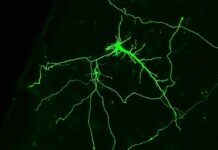The world around us is governed by the laws of classical physics, which describe the behavior of objects on a macroscopic scale. However, at the microscopic level, a different set of laws governs the behavior of matter and energy. These laws are known as quantum mechanics, and they are among the most strange and fascinating aspects of modern physics.
In this article, we will delve into the world of quantum mechanics, from its origins in the early 20th century to the latest advances in the field. We will discuss the fundamental principles of quantum mechanics, the strange behavior of quantum particles, and the potential applications of quantum technologies.
Unveiling the Fundamentals of Quantum Mechanics
Quantum mechanics is based on a few key principles that set it apart from classical physics. These principles include:
-
Wave-Particle Duality
In classical physics, matter is described as particles with well-defined positions and velocities. In quantum mechanics, however, particles can also exhibit wave-like behavior. This means that particles can be thought of as waves of probability, rather than as objects with definite positions.
This wave-particle duality is one of the most fundamental aspects of quantum mechanics. It means that particles can exist in a state of superposition, where they are in multiple states at the same time. This leads to some of the strange and counter-intuitive behavior of quantum particles, such as quantum entanglement.
-
Uncertainty Principle
Another fundamental principle of quantum mechanics is the uncertainty principle, which states that it is impossible to simultaneously know the exact position and momentum of a particle. This means that the more precisely we know the position of a particle, the less precisely we can know its momentum, and vice versa.
The uncertainty principle has far-reaching implications for the behavior of quantum particles. It means that the act of measuring a particle can change its state, and that the outcome of any measurement is inherently probabilistic.
-
Quantum Entanglement
Quantum entanglement is a phenomenon where two particles become linked in such a way that the state of one particle is dependent on the state of the other, even if they are separated by vast distances. This means that measuring the state of one particle can instantaneously affect the state of the other, regardless of the distance between them.
Entanglement is one of the most fascinating and puzzling aspects of quantum mechanics. It has been observed in many experiments, and it has the potential to be used for quantum communication and quantum computing.
The Strange Behavior of Quantum Particles
The principles of quantum mechanics lead to some very strange and counter-intuitive behavior on the part of quantum particles. Some of the most notable examples include:
-
Quantum Tunneling
Quantum tunneling is a phenomenon where a particle can pass through a barrier that would be impenetrable according to classical physics. This is possible because the particle’s wave function extends beyond the barrier, allowing it to tunnel through.
Quantum tunneling has important implications for a wide range of applications, from nuclear fusion to electronic devices.
-
Quantum Superposition
As mentioned earlier, quantum particles can exist in a state of superposition, where they are in multiple states at the same time. This leads to some strange and counter-intuitive behavior, such as the famous Schrödinger’s cat thought experiment.
In this experiment, a cat is placed in a box with a device that may or may not release a poison gas, depending on the state of a quantum particle. According to quantum mechanics, the particle is in a state of superposition until it is observed, which means that the cat is both alive and dead until the box is opened and the state of the particle is observed.
-
Quantum Decoherence
Quantum decoherence is the process by which a quantum system loses its coherence and behaves more like a classical system. This occurs when a quantum system interacts with its environment, such as through measurement or interaction with other particles.
Decoherence is a major challenge for the development of quantum technologies, as it can cause quantum information to be lost and make quantum devices less effective.
The Promising Applications of Quantum Technologies
Despite the many challenges posed by the strange behavior of quantum particles, there are many potential applications for quantum technologies. Some of the most promising include:
-
Quantum Computing
Quantum computing is a field that seeks to develop computers that use quantum mechanics to perform calculations. These computers have the potential to be much faster than classical computers, and they could be used to solve problems that are currently impossible to solve with classical computers.
-
Quantum Cryptography
Quantum cryptography is a method of secure communication that relies on the principles of quantum mechanics. It is theoretically impossible to eavesdrop on a quantum communication channel without being detected, which means that quantum cryptography has the potential to provide unbreakable security for sensitive communications.
-
Quantum Sensors
Quantum sensors are devices that use quantum mechanics to measure physical quantities with extremely high precision. They have the potential to be used for a wide range of applications, from medical imaging to navigation.
-
Quantum Simulation
Quantum simulation is the use of quantum computers to simulate complex systems that are difficult to simulate with classical computers. This could be used to study complex materials, such as superconductors, or to simulate chemical reactions.
Challenges and Controversies in Quantum Mechanics
Despite the potential benefits of quantum technologies, there are many challenges and controversies in the field of quantum mechanics. Some of the most notable include:
-
Interpretations of Quantum Mechanics
There are several different interpretations of quantum mechanics, each with its own set of assumptions and implications. Some of the most well-known interpretations include the Copenhagen interpretation, the Many-Worlds interpretation, and the Bohmian interpretation.
The interpretation of quantum mechanics is a topic of ongoing debate and controversy, with many physicists and philosophers taking different positions on the issue.
-
Measurement Problem
The measurement problem is the challenge of reconciling the probabilistic nature of quantum mechanics with the deterministic nature of classical physics. It is unclear why the act of measuring a particle should cause its wave function to collapse into a definite state.
There are many proposed solutions to the measurement problem, but it remains an open question in the field of quantum mechanics.
-
Technical Challenges
Developing and implementing quantum technologies is a major technical challenge, as it requires precise control over individual quantum particles. This requires the development of new technologies, such as superconducting qubits and trapped ions, and the development of new techniques for controlling and measuring these particles.
Conclusion: The Fascinating World of Quantum Mechanics
In conclusion, the world of quantum mechanics is a fascinating and mysterious realm that is vastly different from the world we see around us. The behavior of quantum particles is strange and counter-intuitive, and the principles of quantum mechanics have challenged our understanding of the universe.
Despite the many challenges posed by quantum mechanics, there are many potential applications for quantum technologies, from quantum computing to quantum sensors. As we continue to explore the mysteries of the quantum world, we may unlock even more potential for these exciting technologies.
However, there are also many challenges and controversies in the field of quantum mechanics, from the interpretation of quantum mechanics to the technical challenges of developing and implementing quantum technologies. These challenges will require ongoing research and innovation to overcome.
In the end, the study of quantum mechanics represents a thrilling frontier in physics, with the potential to revolutionize our understanding of the universe and transform the world we live in.
Google News | Telegram
















